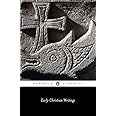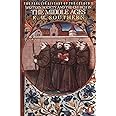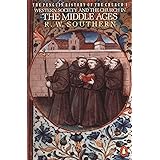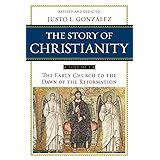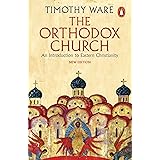
Enjoy fast, free delivery, exclusive deals, and award-winning movies & TV shows with Prime
Try Prime
and start saving today with fast, free delivery
Amazon Prime includes:
Fast, FREE Delivery is available to Prime members. To join, select "Try Amazon Prime and start saving today with Fast, FREE Delivery" below the Add to Cart button.
Amazon Prime members enjoy:- Cardmembers earn 5% Back at Amazon.com with a Prime Credit Card.
- Unlimited Free Two-Day Delivery
- Streaming of thousands of movies and TV shows with limited ads on Prime Video.
- A Kindle book to borrow for free each month - with no due dates
- Listen to over 2 million songs and hundreds of playlists
- Unlimited photo storage with anywhere access
Important: Your credit card will NOT be charged when you start your free trial or if you cancel during the trial period. If you're happy with Amazon Prime, do nothing. At the end of the free trial, your membership will automatically upgrade to a monthly membership.
Buy new:
-31% $12.50$12.50
Ships from: Amazon.com Sold by: Amazon.com
Save with Used - Good
$10.39$10.39
Ships from: Amazon Sold by: Best Peddler

Download the free Kindle app and start reading Kindle books instantly on your smartphone, tablet, or computer - no Kindle device required.
Read instantly on your browser with Kindle for Web.
Using your mobile phone camera - scan the code below and download the Kindle app.

OK
The Early Church (The Penguin History of the Church) Paperback – October 1, 1993
Purchase options and add-ons
- Print length320 pages
- LanguageEnglish
- PublisherPenguin
- Publication dateOctober 1, 1993
- Reading age18 years and up
- Dimensions5.1 x 0.75 x 7.79 inches
- ISBN-100140231994
- ISBN-13978-0140231991
The Amazon Book Review
Book recommendations, author interviews, editors' picks, and more. Read it now.
Frequently bought together

Similar items that may deliver to you quickly
Editorial Reviews
About the Author
Product details
- Publisher : Penguin; Revised edition (October 1, 1993)
- Language : English
- Paperback : 320 pages
- ISBN-10 : 0140231994
- ISBN-13 : 978-0140231991
- Reading age : 18 years and up
- Item Weight : 2.31 pounds
- Dimensions : 5.1 x 0.75 x 7.79 inches
- Best Sellers Rank: #115,504 in Books (See Top 100 in Books)
- #166 in Ancient Roman History (Books)
- #445 in History of Christianity (Books)
- #587 in Christian Church History (Books)
- Customer Reviews:
About the author

Discover more of the author’s books, see similar authors, read author blogs and more
Customer reviews
Customer Reviews, including Product Star Ratings help customers to learn more about the product and decide whether it is the right product for them.
To calculate the overall star rating and percentage breakdown by star, we don’t use a simple average. Instead, our system considers things like how recent a review is and if the reviewer bought the item on Amazon. It also analyzed reviews to verify trustworthiness.
Learn more how customers reviews work on AmazonReviews with images
-
Top reviews
Top reviews from the United States
There was a problem filtering reviews right now. Please try again later.
Indeed, it is probably fair to say that Chadwick’s work could rightfully be called the history of the Christian ideal, because hard data of the early Christian era is hard to come by and is itself eclectic. We know, for example, that Christians worshipped next door to the Roman Emperor Diocletian, at least for a time, but we have no idea of Mary’s final residence or tomb. The author does not fill in the blanks but is comfortable working with what he has; his goal is the sketching the endurance of the Apostolic Tradition of belief, to the point where this unity is seriously and permanently breeched by the separation of Eastern and Western Churches, a somewhat vague era in post-Justinian times.
Chadwick begins with a survey of first century Christian relations with brother Jews, Gentiles, and the Roman Empire. But once the remarkably energetic Christian mission has settled into its own subsistence in the post apostolic era and established a basic order under strong bishops such as Ignatius of Antioch, Christianity became the object of both frontal assaults and interior dissentions. Romans, for example, beheld the Church as separatist and arrogant (and in tough times, unpatriotic.) Moreover, the monotheism of Christianity offended the sensitivities of religious Roman conservatives; this would remain a problem well past the time of Constantine. Internally the Church was beset by a multitude of variations on a theme: the difficulty in accepting a human Jesus in full divine communion with the Father. Gnostics and the followers of Marcion would attack Christian belief from remarkably different vantage points, but the concern remained the same.
The Christian apologist St. Justin, or Justin Martyr (c. 160) established a template of for both Christian apologetics and the development of doctrine. He and subsequent authors would emphasize the continuity of the Jewish Scripture with the identity and mission of Christ. But Justin and others were not uncomfortable using the same methodology of incorporating the enduring wisdom of classical pagan authors. Quite the opposite. Justin and many of the Church’s greatest subsequent thinkers, on through Jerome and Augustine centuries later, were products of classical education and saw in Plato, Socrates, Aristotle and others a natural wisdom, a searching or predisposition to the ultimate truth of the Christian God revealed in Jesus Christ.
The key problem, which Chadwick gradually articulates, is the reality of classical thought itself. There were significant conceptual and linguistic differences between the Platonic (idealistic) East and the Aristotelian (realist) west. Misunderstanding and clumsy translation was rife. A strong and unified Roman Empire might have prevented wholesale rending, and Constantine seemed to appreciate an emperor’s potential contribution to Christian unity in the face of the Arian heresy of the fourth century. All the same, Constantine divided the empire geographically, a move that would make a serious problem worse. Chadwick neither lionizes nor demonizes Constantine on the whole, but he contends that later emperors, beginning with Theodosius, were more problematic in Church life. Generally illiterate in complex theological matters, emperors were prey for opportunistic or outright heretical bishops, with the result that the voices of orthodox giants such as St. John Chrysostom could and would be silenced.
The division of the empire between Rome and the new Constantinople had one more significant impact upon the life of the Church which Chadwick examines in considerable detail, the rise of the monarchical papacy. With the weight of executive and military power shifted east, the Roman West would become a shadow of its old self. The sack of Rome by Alaric in 410 was such a profound religious and psychological event that St. Augustine was compelled to elaborate his “City of God” concept. And yet Rome possessed two irrefutable advantages: its long-held position in history as the mother church established by Peter himself under the aegis of Jesus’ own words (Matthew 16:18ff), and the very bones of the great Peter and Paul. (The importance of these relics is discussed in great length in volume two of this series.)
Thus Chadwick discusses in considerable length the two “Greats” of the papal succession, Leo and Gregory. Leo is perhaps best remembered for his dealings with Attila the Hun, an indication in itself of the power vacuum in the Roman west of the fifth century. But it is his historical intervention in the Council of Chalcedon (451 A.D.) which Chadwick finds as remarkable for its assumption of supreme teaching authority as its theological content. Leo asserts, almost casually, an authority over East and West, whether it be honored in the breech or not. A century later Gregory would exercise this authority in action, overseeing an ambitious missionary program to the north and west among newly arriving ethnic peoples and insuring a lasting Western Roman Church.
Chadwick does take note of some features of Christian art, sacramental worship, and the occasional anecdotal inclusion However, as noted above, this work is more of a study of the development of orthodox belief than a microscopic examination of day-to-day church life. There is inclusion of many names, places and philosophies that may be challenging, people and concepts critical for a time but now generally lost from our general historical consciousness. But all the same, the wonderment of the formulation and survival of the tenets of Christian faith is not obscured and the quest is certainly worth the effort.
Henry Chadwick's The Early Church goes a long way in solving this problem. Written as part of Penguin's History of the Church series, this excellent work is a great place for those with an interest in early Church history to begin their investigations. Chadwick arranges the sections thematically rather than chronologically - allowing a clearer focus for the reader - and masterfully covers all the major currents in the patristic era without leaving his audience adrift in a sea of minutiae. Beginners to the subject of Church history may find it useful to read the book, digest the information, and then reread it, as they will be better prepared to see how the various theological and political currents interacted in the development of Christian orthodoxy.
Those who approach the topic with a theological axe to grind will not find solace in this book. Chadwick is nothing if not an honest historian and both sides in the Protestant/Roman Catholic apologetics wars may feel a bit uncomfortable at times. The centrality of the Eucharistic liturgy as the defining act of Christian worship from the Church's inception, the implementation of the episcopacy as the main defense against heresy, and the long and arduous process of arriving at a canon attack much of the contemporary Protestant ethos. On the other hand, Roman Catholic believers will feel a little uneasy at the scant evidence for anything resembling the modern papacy. Indeed, after reading Chadwick's work, the reader may come to the realization that many battle lines drawn between the two sides would have seemed alien territory to early Christians with an entirely different set of cultural presuppositions.
Although there are certainly more comprehensive works, one would be hard pressed to find a better introductory volume on the early Church than this one. For its clarity, thoroughness, and impartiality, The Early Church is the best place to start any study of this period.
Top reviews from other countries
Chadwick offers his own opinions every now and then such as for the dating of the Didache which was refreshing to read.
It was fascinating to see the similarities in doctrine and practise of the first century church and the Christadelphians of whom I am a member. Please Google or Wikipedia, "Christadelphians" for more.
The book doesn't talk about the Apostolic Fathers such as Ignatius of Antioch, Clement of Rome and Polycarp for no obvious reason. These names should he in a book describing the development of the Early Church.
But, on a positive note, Chadwick explains the development of the early Church and its fights against docetism and gnosticism, ebionism and arianism as well as other heresies.
If you are interested in the Early Church and the Fathers, this is the first book that you should read.



